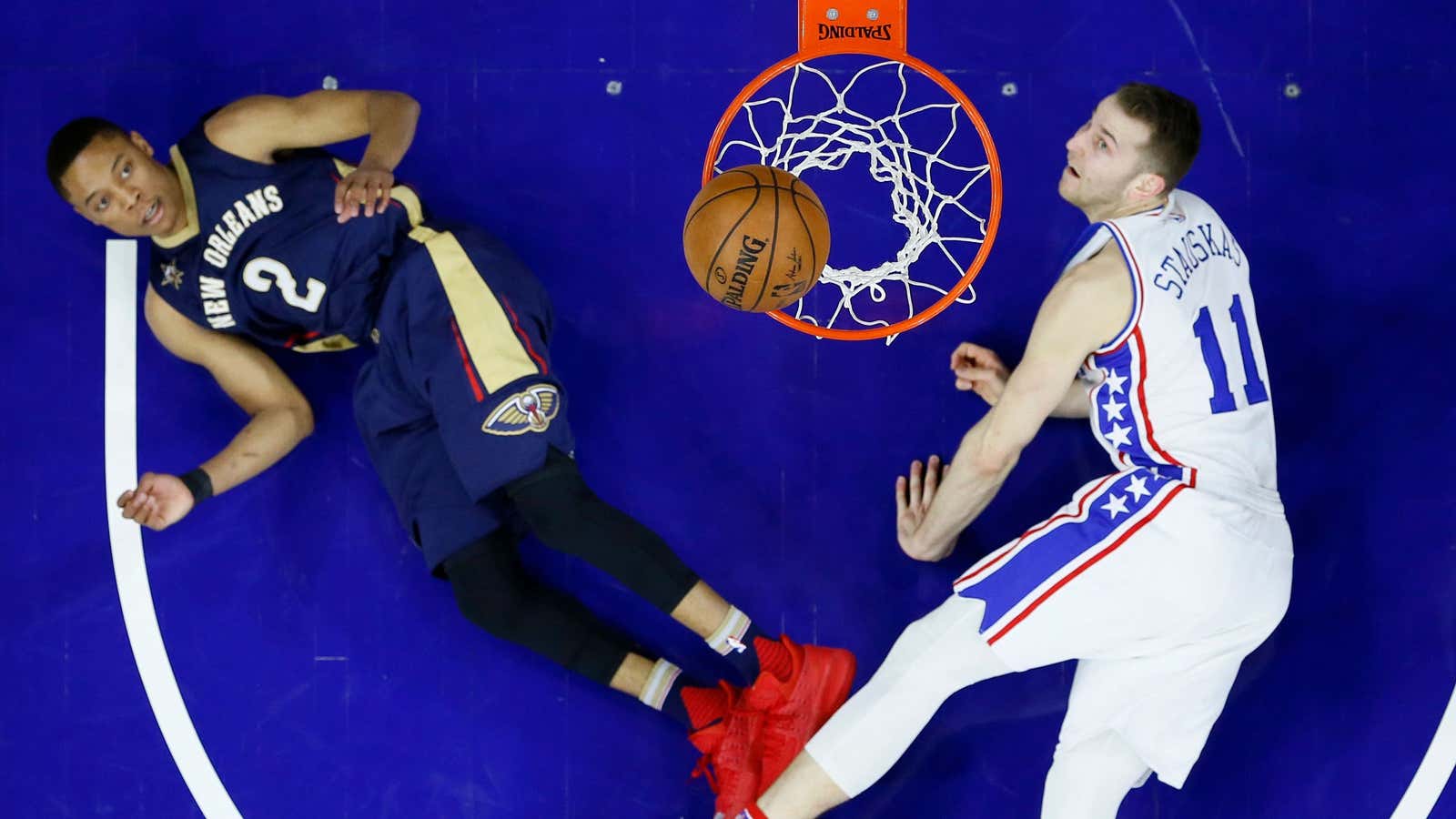Though we know that late-night screen time is bad for our sleep, health, and productivity, scrolling through social media before bed is a frustratingly difficult habit to break.
A recent study from New York’s Stony Brook University aims to quantify just how much productivity suffers at work the day after late-night phone usage, based on a population whose work and social media habits are highly public: NBA players.
Researchers looked at a sample of some 37,000 tweets from 112 professional basketball players with public Twitter accounts from which they had, at some point during their season, tweeted between the hours of 11 pm and 7 am before a scheduled game the next day.
To eliminate the possibility that jet lag could be manipulating results, they looked only at games played in the athletes’ usual time zones.
Athletes tended to spend fewer minutes on the court on the days after they’d been up late. They scored fewer points and had fewer rebounds—which would be expected as a result of fewer minutes in a game. To gauge the quality of their performance, researchers looked at their field goal percentage: the portion of baskets sunk versus the number of shots attempted.
Players whose public social media accounts showed that they were frequently up late on their phones made about as many shots the next day as they typically would. Those who had been up tweeting uncharacteristically late, however, took a big hit in performance. They made about 3.7% fewer of their shots the next day. That’s a big difference in basketball—roughly the percentage that separates a player like the Golden State Warriors’ Stephen Curry, a famously gifted basketball player who is arguably the best shooter of all time, from the Brooklyn Nets’ Joe Harris, who is not very famous at all.
The research has been published in Sleep Health, a journal of the National Sleep Foundation. Jason J. Jones, an assistant professor of sociology at Stony Brook and the study’s lead author, acknowledges that while there’s an intriguing correlation between players’ after-hours tweets and performance, there’s much the researchers can’t account for: whether players stayed up late the night before a game they knew they wouldn’t be playing much in, for example, or because of stress or other factors that might have influenced performance in addition to the lack of sleep.
Still, the study is yet another small scrap of evidence toward the convincing argument that nothing good comes from late-night tweeting. Put the phone away and go to bed.
